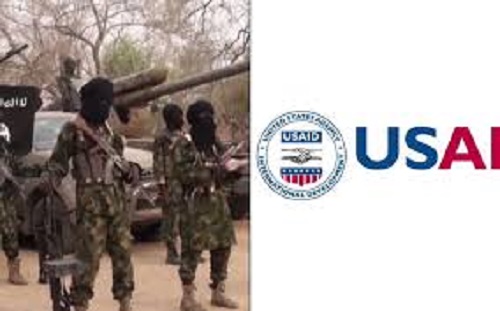By: Lydia Zakka
In an explosive statement made on the floor of the U.S. House of Representatives, Congressman Scott Perry (R-PA) has stunned lawmakers and the public by claiming that USAID (United States Agency for International Development) inadvertently funded Boko Haram and other terrorist organizations operating across Africa and the Middle East. Perry’s revelation has sparked widespread controversy and demands for accountability, with accusations of U.S. taxpayer dollars fueling violent extremism.
During a heated debate on international aid programs, Rep. Perry asserted that a “flawed allocation process” allowed millions in aid to flow into regions controlled by extremist groups. He pointed to several instances where humanitarian funds, intended for legitimate aid purposes, were allegedly misdirected, either through corrupt local governments or ineffective monitoring mechanisms. These funds, Perry suggested, may have indirectly supported groups like Boko Haram, which has waged an insurgency in Nigeria and neighboring countries, leading to mass casualties and displacement.
“USAID’s lack of oversight and transparency in the allocation of resources has put innocent lives at risk, and it is time we have a serious conversation about how our taxpayer dollars are being spent,” Perry declared in his speech. “We cannot afford to fund terrorism under the guise of humanitarian aid. This is not just a failure of oversight; it is a national security issue.”
Perry did not provide specific examples or evidence to support his claim but referenced reports from experts who have raised similar concerns about the effectiveness of aid distribution in conflict zones. The congressman has long been critical of U.S. foreign aid programs, particularly in regions where terrorist groups operate with relative impunity.
The U.S. government, along with USAID, has yet to comment on Perry’s accusation. However, officials have historically defended their aid programs as a means to stabilize fragile regions and promote development, particularly in areas affected by conflict, poverty, and instability.
Critics of Perry’s claims caution that the congressman’s broad accusations could fuel conspiracy theories and erode trust in legitimate foreign assistance programs. They argue that USAID’s mission is focused on providing relief to those in need, including refugees, displaced persons, and communities impacted by war and poverty.
Nevertheless, Perry’s comments have raised urgent questions about accountability, oversight, and the effectiveness of U.S. foreign aid in the fight against terrorism. Some lawmakers are already calling for hearings to investigate the allegations and review USAID’s protocols.
As the story develops, the American public will likely be paying close attention to the outcome of this dramatic claim, which could have significant implications for U.S. foreign policy and the future of international aid programs.







